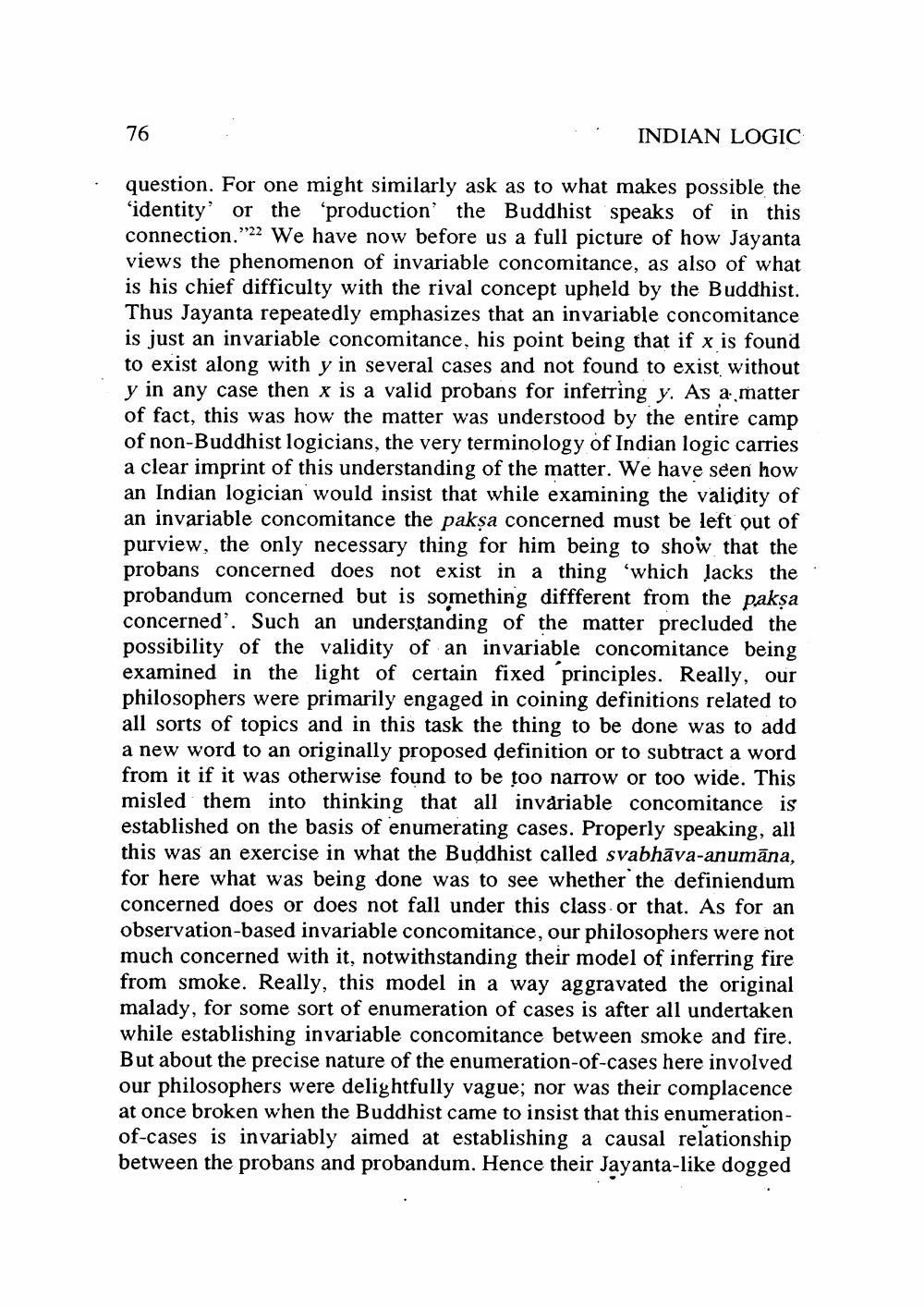________________
76
INDIAN LOGIC
question. For one might similarly ask as to what makes possible the 'identity' or the 'production' the Buddhist speaks of in this connection." We have now before us a full picture of how Jayanta views the phenomenon of invariable concomitance, as also of what is his chief difficulty with the rival concept upheld by the Buddhist. Thus Jayanta repeatedly emphasizes that an invariable concomitance is just an invariable concomitance, his point being that if x is found. to exist along with y in several cases and not found to exist without y in any case then x is a valid probans for inferring y. As a matter of fact, this was how the matter was understood by the entire camp of non-Buddhist logicians, the very terminology of Indian logic carries a clear imprint of this understanding of the matter. We have seen how an Indian logician would insist that while examining the validity of an invariable concomitance the pakṣa concerned must be left out of purview, the only necessary thing for him being to show that the probans concerned does not exist in a thing 'which Jacks the probandum concerned but is something diffferent from the paksa concerned'. Such an understanding of the matter precluded the possibility of the validity of an invariable concomitance being examined in the light of certain fixed principles. Really, our philosophers were primarily engaged in coining definitions related to all sorts of topics and in this task the thing to be done was to add a new word to an originally proposed definition or to subtract a word from it if it was otherwise found to be too narrow or too wide. This misled them into thinking that all invariable concomitance is established on the basis of enumerating cases. Properly speaking, all this was an exercise in what the Buddhist called svabhāva-anumāna, for here what was being done was to see whether the definiendum concerned does or does not fall under this class or that. As for an observation-based invariable concomitance, our philosophers were not much concerned with it, notwithstanding their model of inferring fire from smoke. Really, this model in a way aggravated the original malady, for some sort of enumeration of cases is after all undertaken while establishing invariable concomitance between smoke and fire. But about the precise nature of the enumeration-of-cases here involved our philosophers were delightfully vague; nor was their complacence at once broken when the Buddhist came to insist that this enumerationof-cases is invariably aimed at establishing a causal relationship between the probans and probandum. Hence their Jayanta-like dogged




